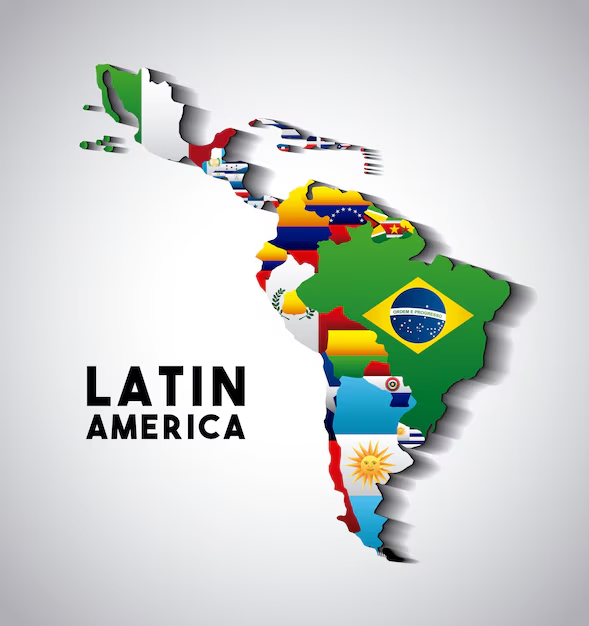Transforming South American Cities: A Comprehensive Approach to Informal Settlement Upgrading
The rapid urbanization sweeping across South America presents a significant challenge: the proliferation of informal settlements. Characterized by inadequate housing, limited access to essential services, and a lack of legal recognition, these settlements pose a substantial hurdle to sustainable and inclusive urban development. However, innovative approaches to informal settlement upgrading offer a pathway to improved living conditions and community empowerment, fostering unity and social progress across the continent.
Understanding the Complexities of Informal Settlements
Informal settlements, often referred to as slums or shantytowns, are unplanned urban areas lacking formal infrastructure and services. Residents often face a daily struggle for access to clean water, sanitation, electricity, and secure housing. These conditions significantly impact health, education, and overall quality of life, perpetuating cycles of poverty and marginalization.
The Scale of the Challenge and the Urgent Need for Change
The sheer scale of informal settlements in South American cities is staggering, with millions of people living in substandard conditions. This presents a complex challenge requiring coordinated efforts from governments, NGOs, the private sector, and community members themselves. Addressing this issue is not merely a matter of providing basic services; it is about ensuring fundamental human rights and building more equitable and sustainable urban environments.
A Holistic Approach: Upgrading for Sustainable and Inclusive Development
Informal settlement upgrading transcends simply improving physical infrastructure. It encompasses a holistic approach that integrates infrastructural improvements—providing access to clean water, sanitation, electricity, and safe housing—with social and economic empowerment initiatives. This includes enhancing access to education, healthcare, employment opportunities, and legal recognition for residents.
Success Stories: Demonstrating the Power of Transformation
Numerous successful informal settlement upgrading projects across South America highlight the transformative potential of this approach. The remarkable revitalization of Medellín's Comuna 13, for example, showcases how targeted investments in transportation, education, public spaces, and community engagement can convert a once-troubled area into a vibrant and thriving neighborhood. These success stories underscore the importance of community-led initiatives and collaborative partnerships.
Empowering Communities: Participation and Ownership as Key Drivers of Success
Meaningful community participation is paramount to successful upgrading initiatives. By actively involving residents in the planning, implementation, and monitoring processes, projects become more effective and sustainable. Empowering communities to take ownership of their development ensures that solutions address their specific needs and aspirations, fostering a sense of collective responsibility and pride.
Leveraging Technology for Efficient and Transparent Implementation
Technology plays an increasingly crucial role in efficient and transparent informal settlement upgrading. Mobile applications can facilitate service delivery, digital mapping can optimize resource allocation, and data analytics can provide crucial insights to monitor progress and measure impact. The strategic use of technology can streamline operations and enhance accountability, ensuring that resources are used effectively and efficiently.
Strategic Partnerships and Innovative Financing: Mobilizing Resources for Impact
Addressing the complex challenges of informal settlements requires a multi-sectoral approach, involving collaboration between governments, NGOs, the private sector, and international organizations. Innovative financing mechanisms, such as public-private partnerships and microfinance initiatives, are crucial in mobilizing the necessary resources to support large-scale upgrading projects.
Robust Policy and Legal Frameworks: Ensuring the Rights and Security of Residents
Strong policy and legal frameworks are essential for creating a supportive environment for informal settlement upgrading. These frameworks must prioritize the rights and security of residents, provide clear guidelines for urban development, and incentivize participation in upgrading initiatives. Legal recognition of land tenure and property rights is a crucial step towards fostering long-term stability and security.
Global Best Practices: Learning and Adapting for Local Contexts
While South America faces unique challenges, learning from successful informal settlement upgrading initiatives in other regions can inform and improve local strategies. By adapting best practices to specific contexts, projects can benefit from lessons learned elsewhere, optimizing their impact and sustainability.
Investing in Capacity Building and Education: Fostering Long-Term Sustainability
Sustained improvements require significant investments in capacity building and education. Equipping community members with skills in urban planning, community development, and social entrepreneurship empowers them to become agents of change within their own communities, ensuring the long-term sustainability of upgrading efforts.
Advocacy and Awareness: Building a Collective Commitment to Change
Raising public awareness about the challenges faced by residents of informal settlements is vital for generating support and mobilizing resources. Advocacy efforts focused on policy changes, public education campaigns, and community engagement can foster a sense of collective responsibility, leading to broader societal commitment to addressing this critical issue.
Measuring Impact and Ensuring Accountability: Continuous Monitoring and Evaluation
Robust monitoring and evaluation mechanisms are essential for assessing the effectiveness of upgrading projects and ensuring accountability. Regular data collection and analysis provide valuable insights into the impact of interventions, allowing for continuous improvement and the adaptation of strategies based on evidence-based decision-making.
Conclusion: A Collective Effort Towards a More Equitable Future
Informal settlement upgrading is not merely a technical challenge; it represents a fundamental commitment to social justice and equitable urban development. By fostering unity, collaboration, and empowerment, we can transform informal settlements into thriving, inclusive communities, creating a brighter future for millions of people across South America. This requires a sustained commitment to innovation, collaboration, and a shared vision for a more equitable and sustainable urban future.
```

